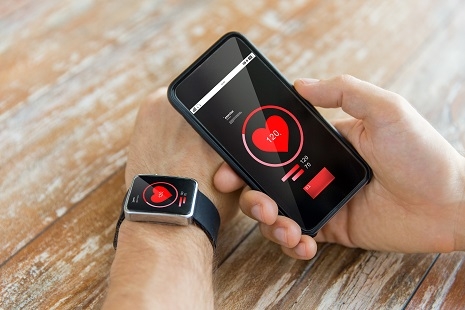Research Shows Wearable Biosensors Lack Evidence in Clinical Outcomes
Orange County, CA - July 5th, 2018 - Wearable biosensors have become popular over the past decade. People all around the world are using them as an activity tracker, blood pressure monitor, or a sleep assessment. It’s a digital device that can be worn on the body in the form of a wearable system or a device such as a smartwatch or a thin bandage
Physicians are able to measure a patient’s blood pressure, glucose levels, and heart rate remotely. This technology can possibly enhance the quality of life, minimize medical errors, and reduce healthcare costs. However, there isn’t enough evidence that they improve patient outcomes like weight or blood pressure.
A new study by investigators from Los Angeles’ Cedars-Sinai Hospital conducted a literature analysis and found that remote patient monitoring (RPM) with sensors had no significant impact on any of six clinical outcomes studied: body mass index, waist weight, body fat percentage, circumference, systolic and diastolic blood pressure.
"As of now, we don't have enough evidence that they consistently change clinical outcomes in a meaningful way, but that doesn't mean they can't." said senior author Brennan Spiegel, MD, director of Cedars-Sinai Health Services Research.

Investigators reviewed 27 studies from 13 countries published between January 2000 and October 2016. Each study examined the effects of remotely monitoring patients using wearable biosensors, and only 16 out of 4,000 studies were of high quality. The authors concluded that there was a lack of data from study evidence provided so far.
“Given that many of these studies were described as pilot studies, it is clear that the field of RPM is relatively new and evolving. Larger studies with multiple intervention groups will be able to better distinguish which components are most effective and whether behavior change can be sustained over time using RPM” said lead author Benjamin Noah, a clinical research associate at the Center for Outcomes Research and Education.
As the technology matures for wearable biosensors more trials are likely to be on their way.
Contact Ampronix:

Email: info@ampronix.com
International Sales: +1 949-273-8000
Domestic Sales: 1800-400-7972 for US and Canada
Follow Us:
Share This Article:
View our Product Catalog Online Here
About Ampronix
Ampronix is a renowned authorized master distributor of the medical industry's top brands as well as a world-class manufacturer of innovative technology. Since 1982, Ampronix has been dedicated to meeting the growing needs of the medical community with its extensive product knowledge, outstanding service, and state-of-the-art repair facility. Ampronix prides itself on its ability to offer tailored, one-stop solutions at a faster and more cost-effective rate than other manufacturers. Ampronix is an ISO & ANSI/ESD certified facility. To learn more go here.

Research Shows Wearable Biosensors Lack Evidence in Clinical Outcomes Orange County, CA – July 5th, 2018 – Wearable biosensors have become popular over the past decade. People all around the world are using them as an activity tracker, blood pressure monitor, or a sleep assessment. It’s a digital device that can be worn on the body in […]



